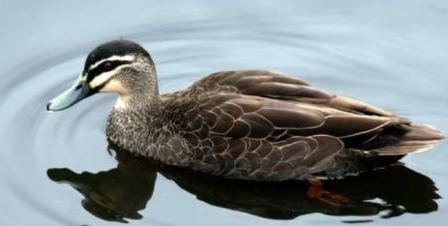Aboriginal cultural and heritage projects
The Eurobodalla Aboriginal Heritage Study was undertaken between 2005 and 2008. It aimed to improve understandings and protection of Aboriginal cultural heritage in the Eurobodalla Shire.
Following up on recommendations from the Aboriginal Heritage Study, Council completed four Aboriginal culture and heritage projects in partnership with the community in 2012.
With consideration by the Eurobodalla Aboriginal Advisory Committee, some reports have been made available on this website. Other culturally sensitive documents can also be made available to local Aboriginal communities and agencies if they comply with agreed protocols and information agreements. Please contact council on 4474 1000 for more information.
Council acknowledges the cultural and intellectual property rights of Aboriginal people whose cultural knowledge is featured in these publications and reports and together with the Aboriginal informants jointly holds the copyright to any publicly available information collected for the purposes of these projects. The information collected remains the property of the informants and may not be used for purposes other than those permitted by standard Australian Copyright laws without written permission.
Eurobodalla Aboriginal Heritage Study
This four-stage study aimed to improve understandings and protection of Aboriginal cultural heritage in the Eurobodalla Shire.
While the protection and management of non-Aboriginal heritage is well established in local government town planning practice, the protection of Aboriginal heritage had previously lacked an effective and consistent approach. In part this is due to the complexity of Aboriginal heritage, which consists of tangible and intangible elements.
Download
- Aboriginal Heritage Study - Stage 1 (15 MB)
- Aboriginal Heritage Study - Stage 2 (7 MB)
- Aboriginal Heritage Study - Stage 3 (1.33 MB)
- Aboriginal Heritage Study - Stage 4 (2 MB)
- Aboriginal Heritage Study - Stage 4 Appendix 7 (4 MB)
- Aboriginal Heritage Study - Stage 4 Appendix 12 (222 KB)
Research stages
- Stage one: compiled text-based materials relating to the early contact period. We consulted with LALC representatives, held a community workshop and hosted two steering committee meetings.
- Stage two: built upon the heritage themes identified in the written record through fieldwork and oral history interviewing. It included 37 individual oral histories with Aboriginal knowledge holders undertaken, group interviews and extensive field assessment. We held six community workshops at Wallaga Lake, Narooma, Bodalla, Moruya, Mogo and Batemans Bay involving 50 Aboriginal participants, and 12 field trips involving over 30 Aboriginal participants, and further follow-up with 20 Aboriginal participants and four steering committee meetings.
- Stage three: combined information gathered from stages one and two in conjunction with researching gaps identified by the steering committee. We hosted six community workshops at Wallaga Lake, Narooma, Bodalla, Moruya, Mogo and Batemans Bay involving 40 Aboriginal participants, and followed up further with 15 Aboriginal participants and three steering committee meetings.
- Stage four:
- assessed relevant local government planning legislation and policy including a review of similar Aboriginal heritage projects and protection methodologies in other local government areas
- assessed the heritage significance of places proposed to be listed in the Local Environment Plans (LEP)
- developed a draft inventory
- drafted additional provisions for Council's Local Environmental Plan or Development Control Plans and reviewed Council's Policies and Codes of Practice relating to Aboriginal heritage assessment and consultation with the Aboriginal community.
Consultation involved six community workshops at Wallaga Lake, Narooma, Bodalla, Moruya, Mogo and Batemans Bay involving 35 Aboriginal people, follow up consultation involving 12 Aboriginal people and three steering committee meetings.
Follow-up projects
Following up on recommendations from the Aboriginal Heritage Study, Council completed four Aboriginal culture and heritage projects in partnership with the community in 2012.
These projects were funded by Eurobodalla Shire Council, the NSW Office of Environment and Heritage and the Commonwealth Department of Sustainability, Environment, Water, Population and Communities with a contribution from Merriman's Local Aboriginal Land Council.
Invisible Places: A history of Aboriginal reserves in Eurobodalla
This report presents a history of the 12 former Aboriginal reserves in the Eurobodalla Shire.
The former Aboriginal reserve system across NSW was initially a reaction to changes following settler selection of land, sometimes in response to requests for land made by Aboriginal people or by settler farmers advocated on behalf of dispossessed locals.
Exploring the significance of totems in Aboriginal culture
The term 'totem' is used to describe the complex inter-relationship between people and the natural world, the two providing mutual benefits to each other through a spiritual, yet tangible inter-dependency.

Species identified included the Black Swan with it's affiliation to the Moruya area and the Black Duck with it's affiliation to the region, in particular to Wallaga Lake.
Gravesites within the Wallaga Lake Cemetery
This investigation combined information from historical records, oral history and a ground penetrating radar survey (GPR) of the privately owned Wallaga Lake Aboriginal Cemetery.
The aim of the investigation was to identify any unmarked graves and establish names for marked, unnamed graves. Not all locations identified by oral history and historical records could be verified. It was determined that further community consultation, historical research and oral history recording was required.
This initial investigation led the way the 2014-15 Caring for Ancestors: Wallaga Lake Cemetery project.
Dhurga Timeline Project
 This project developed an educational display illustrating Aboriginal history in the Eurobodalla, based on information collected during the course of the Eurobodalla Aboriginal Heritage Study and further community participation.
This project developed an educational display illustrating Aboriginal history in the Eurobodalla, based on information collected during the course of the Eurobodalla Aboriginal Heritage Study and further community participation.
Due to refurbishment, the timeline display is not currently available for loan. Please contact us on 02 4474 1296 for more information.
For more information
For further details please contact strategic planner heritage Viv Straw:
- T: 02 4474 1324
- E: Vivian Straw
